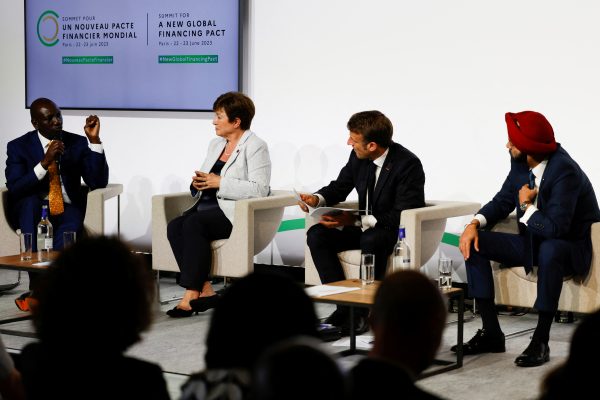The combination of these three truths has produced a predicament that the world has not yet grappled with — that action on climate change is inextricably linked to the financial stability of developing countries, both perceived and actual.
This is a big problem. Estimates of how much investment will be required by developing countries to fight climate change over the coming decades are in the tens of trillions of dollars. But developing countries, particularly those in East Asia, lack sufficient domestic savings given the massive amounts of investment already needed to reduce poverty and develop their economies, meaning they typically run current account deficits — where a country imports savings from overseas.
These current account deficits can often be a source of financial volatility. When an international shock occurs, countries with a current account deficit greater than three per cent of GDP tend to be punished by the market with capital outflows, hurting the financial sector and the exchange rate.
The last few years have been a case in point. As US interest rates have risen, capital has been sharply withdrawn from developing countries and shifted to the United States to enjoy higher returns. This has caused a sudden tightening of financial conditions in developing countries and pushed down their exchange rates against the US dollar, making their foreign denominated debts larger and, in some instances like Bangladesh, requiring IMF assistance. The same turbulence was experienced during the taper tantrum in 2013 and the global financial crisis in 2008.
Recent estimates suggest that if developing countries were to import the necessary foreign savings to fight climate change, their current account deficits could increase substantially. This is a terrifying thought for developing country finance ministers who have become hypersensitive to growing current account deficits. The result is that policymakers limit financial inflows using monetary policy and macroprudential tools to keep the current account deficit in check, constraining economic growth — and in the process, constraining the sustainable investment needed to fight climate change.
To be sure, recent international turbulence has revealed that developing countries, particularly in Asia, have come a long way in bolstering the resilience of their financial systems. Decades of reform have strengthened risk monitoring frameworks, hedged risks, liberalised exchange rates, deepened financial systems, strengthened supervisory mechanisms and improved resolution processes for troubled banks and financial institutions.
Not all developing countries face the same challenges, and not all developing countries have the same contribution to climate risks. And there is only so much developing countries can do. While recent crises have revealed how far developing countries have come, they’ve also shown their continued susceptibility to global shocks. If developing countries are to import the foreign savings needed to fight climate change, the rich world and the institutions it controls will need to work with them to reduce financial instability.
Luckily, there are practical things that can be done. At the global level, efforts to reform the lending conditions of the International Monetary Fund need to be continued, to reduce the stigma which stops developing countries from seeking assistance. Development banks, like the Asian Development Bank at the regional level and the World Bank at the global level, can provide finance directly through concessional lending and grants to ease the financing burdens of developing countries.
An emerging deal between China and the World Bank will likely see China agree to reschedule some of its loans to developing countries where, in return, the World Bank will increase its lending to developing countries, including for climate action. The COP27 agreement to loan Indonesia US$20 billion will also help. But given that the size of the green investment required dwarfs the resources of these institutions, development banks will need to be more innovative and use their balance sheets to help backstop the liquidity of developing country governments as they undertake sustainable investments.
Bilaterally, rich world central banks need to use currency swap lines and standby loans to plug the gaps in the safety net and ensure that all developing countries have access to foreign exchange in times of need. And international institutions need to support developing countries by implementing the tools and mechanisms that the countries need domestically to manage risks from capital inflows. These tools and mechanisms can also help them to price carbon domestically as part of a global approach and implement domestic regulatory reforms to fight climate change, including the elimination of fossil fuel subsidies.
In a nutshell, climate change is a global challenge that will be won or lost in developing countries. All countries have a shared incentive to ensure the necessary investments are undertaken in developing countries — and that means all countries have a shared incentive to bolster the financial stability of developing countries. If the last two years have shown us anything, it’s that we have a long way to go.
M Chatib Basri teaches in the Economics Department at the University of Indonesia and was formerly Indonesia’s Minister of Finance.
Adam Triggs is Partner at Mandala, and Non-Resident Fellow at the Brookings Institution and the Crawford School of Public Policy, The Australian National University.

